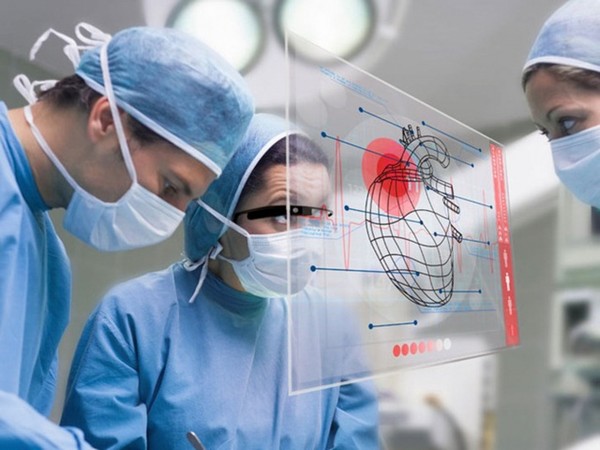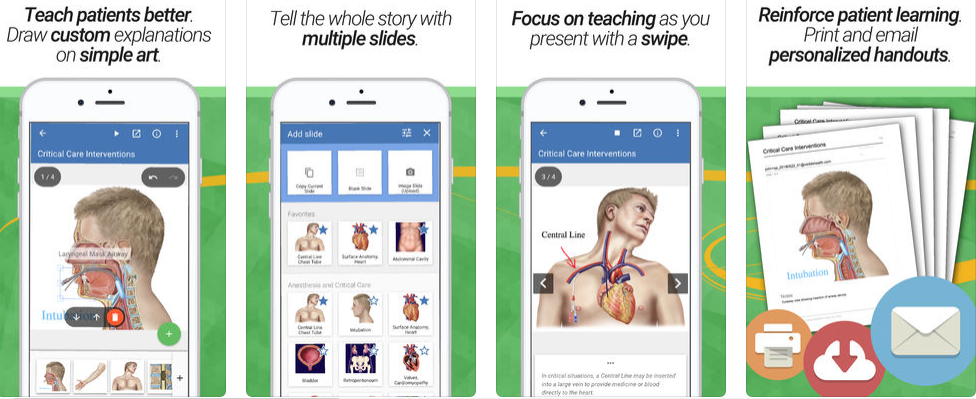‘Pokémon Go’ could have lured the world towards Augmented Reality but in the present time and age, the technology is not limited to gaming only. Healthcare is one amongst the most influenced industry from Augmented Reality in the present time and the graph is only expected to rise in the future as well.

When compared between the 10, Healthcare is amongst the top three industries who are raising their high trust values on Augmented Reality after Automotive & Media and Telecom. The best part is that it is expected to maintain the same decorum in the coming years too.
By the year 2023, the total market valuation of Augmented Reality in healthcare is expected to reach 1.32 billion. It is expected to touch an impressive CAGR of 23% during the tenure. Doesn’t this data itself gives a brief about the future possibilities of AR in the healthcare industry?

Source: Market Research Future
According to the same research source, the North American region is going to head with vast technological advancements. The high per capita healthcare expenditure could be considered as the biggest reason for its dominance over the global market of AR in the healthcare industry.
Research by Bain & Company tells that the adoption rate of AR in healthcare is expected to incline to 42% as compared to 13% in the present time. So, the field definitely has a high possibility for those who are planning to invest in technology in the coming years.
From assisting doctors to perform surgeries with high accuracy to letting a patient keep a track of his health conditions; there are many ways in which AR is changing the lives of people. It is not possible to mention all benefits here, so we are presenting the 5 prominent ‘how’ the immersive tech is transforming the healthcare industry.
5 Ways Augmented Reality is Benefitting Healthcare Industry
# Improved Access: As we know that through the technology of AR virtual things can be augmented in the real world. This form of tech has helped the healthcare industry by improving access to treatment. This means patients need not wait in a long queue to get a consultation from a doctor, even if they are at a distance better assistance can be provided.
This can be understood with an example. For instance, a person needs treatment in a remote area and a trained physician is not available there. Through Augmented Reality specialist can guide about the necessary actions to the colleague in real time and hence prompt medical assistance can be provided.
# Better Training: Medical training can be sometimes dangerous and life-taking as well, especially when a novice is performing the task. But, as the trainee doctors have no other options than the live subject, they somehow have to perform the work.
With the commencement of AR, better training is now provided to the trainee doctors and that too without risking anyone’s life. For example, to give training about open heart surgery there is no need to risk the life of a patient. Through AR complete human heart functionality could be explained and also the necessary treatments.
# Assistance in Practice: Not only the trainee doctors and nurses but AR is also aiding the practitioners too in doing their task. The technology has enabled them to perform their medical practice with much accuracy.
For instance, through the 3D visualization of internal organs, the surgeon can get the exact see-through view and can hence plan the procedure accordingly. They can know where to put the slit or exactly at which place they need to provide the treatment. Hence, the chances of surgery failure can drop down
# Educating Patients: There are many applications that motivate the patients towards proactive self-care. For instance, an AR-enabled eye testing app can let the patient evaluate their eye condition and in case they find that something is not right they can consult a doctor. There are many other apps like this which is setting new dimensions in the healthcare industry by spreading awareness amongst patients in the best way possible.
# Delivering Treatment: If you are wondering if AR can provide treatment to patients then the answer is yes, it can. This can be considered especially in the case of physiotherapy treatment. With the help of an AR-enabled device, the patient can get instructions and can perform the exercises accordingly.
The digital demonstrations can be mapped directly onto the motions people perform as part of their therapy. As a result, while they watch themselves in tandem with the demonstration, they can refine their movements accordingly.
Example of AR-enabled Healthcare App
DrawMD

Source: iTunes
This mobile app is focussed on educating the patient through AR-enabled technology. The app has full medical artwork library. A patient can select drawing templates for a variety of medical specialties, including: Anesthesia & Critical Care, Breast Health, Cardiology, ENT, Family Practice, Female Pelvic Surgery/Urogynecology, Gastroenterology, General Surgery, OB/GYN, Ophthalmology, Orthopedics, Pediatrics, Plastic Surgery, Pulmonology Speech-Language Pathology, Thoracic Surgery, Transplant Surgery, and Urology.
There are multiple slide options in the app which helps in elaborating about the disease well to a patient. Along with this, the patient will get an e-mail and print handouts that would help the patient to keep a record of the slides for future references.
Over to You
Technology has made our lives simpler. When it comes to invasion of technology then without any doubt it can be concluded that it has changed the entire scenario of the medical industry. Whether it is educating a patient about a disease, assisting the doctors of teaching the practitioners, Augmented Reality in the healthcare industry is setting a new dimension with the passage of every day.
There are several mobile app development services companies that are leveraging the technology to provide a great user experience. The graph of growth clearly elaborates to us, what the future is going to be. The faster growth of the technology in healthcare apps is definitely opening the doors to the medical start-ups and enterprises too.
